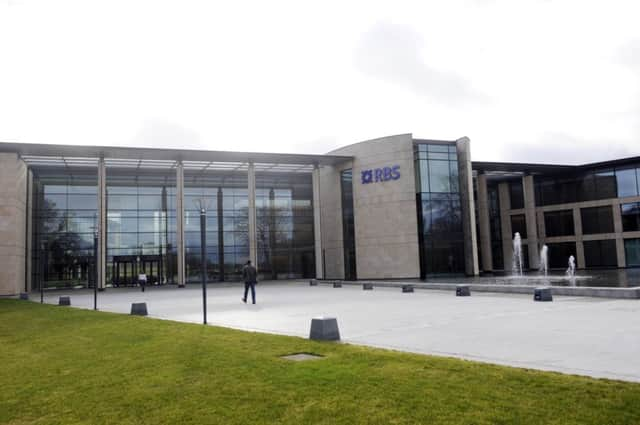RBS awards directors shares of up to £18.25 million


The news comes a week after part-nationalised RBS announced an £8.2 billion annual loss, its sixth consecutive deficit, and pledged to rebuild trust with its customers.
Last month, RBS revealed a £576m bonus pot for staff – which does not include yesterday’s shares handout – despite it falling further into the red.
Advertisement
Hide AdAdvertisement
Hide AdLast night, Patrick Harvie, co-convener of the Scottish Green Party, hit out at the directors’ bonuses and pointed out there was now an appetite for smaller, local banks which invested in communities. He said: “This is yet another example of the scandalous culture of over-payment in a bank which has already cost the taxpayer a vast amount of money. In the future, whether in an independent Scotland or as part of the UK – we must move towards a culture of small, local municipal banks, which invest in the real economy and have roots in local communities.”
SNP Treasury spokesman Stewart Hosie said: “As a taxpayer-owned institution, RBS should think twice before paying out these bonuses. The public will simply not understand.
“Any shares for senior figures must be held for a considerable period of time to ensure they deliver consistent improvements for customers – not short-term gains for executives.’
Labour’s finance spokesman Iain Gray said the decision would “raise eyebrows” given the bank’s continued “dramatic” losses.
The MSP said: “Given we as taxpayers are the major shareholder, it is for the ‘Con-Dem’ government to justify why such bonuses are acceptable.
“I think that will be a hard task at a time when ordinary families are struggling with rising bills and pay freezes.”
The 11 directors will not receive the shares until March 2017 and the bonuses risk being clawed back in the event of future under-performance by the bank.
RBS also announced yesterday that nine directors had sold shares which had been awarded under previous long-term incentive schemes.
Advertisement
Hide AdAdvertisement
Hide AdIn total, they received some £5.3m of shares and after selling a proportion to cover tax liabilities were left with £2.65m worth. They have to keep the remaining shares for at least six months before selling them. The biggest beneficiary was the head of the bank’s US operations Bruce van Saun, who received shares worth more than £1.6m and sold more than half of them to satisfy tax liabilities.
The three latest directors to join Mr McEwan’s executive committee – Rory Cullinan, who runs RBS’s “bad bank” established as part of a carve-up of the organisation, Alison Rose and Donald Workman – were also awarded annual share bonuses totalling potentially more than £3m. In total, the shares which were vested yesterday could see more than £23m paid out to top management.
Separately, Lloyds yesterday awarded more than £12m to board members in bonuses through share awards under long-term incentive plans. The bonus pot – down 15 per cent on 2012 – included a £237m payout shared among its investment bankers.
Details of the pay packages for all banks’ so-called “code staff” – who work in senior jobs that are deemed crucial to the running of the bank – will be announced shortly.
Under EU rules, from 2015 RBS can only pay bonuses up to 100 per cent of annual salary, or up to 200 per cent if shareholders approve the decision.
Earlier this week, Barclays came under fire after it paid £2.4bn in incentive awards last year, raising bonuses at the investment bank by 13 per cent despite a slump in its profits. The average bonus for the investment bank’s 26,200 staff was £60,100.
RBS saw 2013 losses widen significantly from £5.3bn in 2012, after making a £3.8bn provision for scandal-related charges and taking a £4.8bn hit for the creation of an internal “bad bank”.
Mr McEwan has outlined a revival plan to make the bank “smaller, simpler and smarter” that will see it shrink from seven divisions to three and overhaul its service and products for retail customers. He warned there would be job losses because of plans to cut the number of divisions and make savings under a swingeing cost-cutting drive.